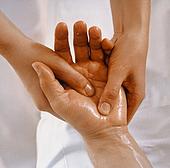
Having a first aid kit available in your home and car will help you be ready when an incident or emergency occurs. Being prepared will help you stay calm while you help your loved ones. Although you can buy a first aid kit, you can also put one together. Here’s what you will need
The first aid kit
Paperwork
- List of emergency numbers including the fire department, ambulance, police, social services, and other useful numbers. Make sure that the numbers you have work.
- First aid manual
- Medical aid information
- Medical history information per family member
Bandages
- Adhesive bandages
- Variety of children’s bandages or band aids
- Sterile gauze pads
- Gauze roll
- Adhesive tape
- Elastic bandages
- Triangular bandages (used to create a sling)
General
- Tweezers (for bee stings or splinters)
- Scissors (to cut gauze, tape, or bandages)
- Blanket (used to keep the person warm and help with shock)
- Thermometer (to check for fever)
- Safety pins (to pin bandages, splints, or slings)
- Latex or non-latex gloves
- Aluminum finger splint
- Eye shield or pad (in the event of eye infection)
- Sterile cotton balls and swabs
- Breathing barrier to help with CPR
- Turkey baster to flush wounds with water
- Hand sanitizer
- Sunblock
- Insect repellent
- Solar charger for your cell phone
- Notepad and pens
- Whistle
Medication
- Antiseptic solution or wipes (to clean the wound, tweezers or scissors)
- Antibiotic ointment
- Sterile eyewash or saline solution
- Calamine lotion
- Pain and fever medication (paracetamol and ibuprofen)
- Medication for colds and flu (cough syrups and nasal decongestants)
- Anti-nausea medication
- Anti-diarrhea medication
- Aspirin (in case of a heart attack)
- Laxative
- Antacid
- Antihistamine (for allergies)
- Hydro cortisone cream
- Auto-injector of epinephrine (only if you have a member with severe allergies otherwise the epinephrine will expire before you use it)
- Aloe Vera gel
- Re-hydration packages or energy drinks (if you need to replenish electrolytes)
- Asthma medication (if you have a family member prone to asthma attacks)
Extra tips
Although most injuries that you will deal with as a parent can be handled by you or your partner, taking a first aid course is always beneficial. It will help you feel confident in your abilities to handle medical crises. Always trust your instincts; if you are uncertain of the severity of the situation call for an ambulance or take the injured person to the ER at a hospital near you.
When you are helping a loved one in an injury, stay calm. To help you keep calm, breathe deeply and mentally counting to five. This will slow your heart rate while giving your body sufficient oxygen. The calmer you are, the clearer you will think.
If a person’s injury does not require immediate medical attention but you are uncertain how to treat it, the internet has many links to guide you through the process of what to do and how to help. Being prepared for what may come your way is empowering, but don’t focus on it. Instead, enjoy the time you spend with your family and loved ones. Make many happy memories with them. Enjoy life to the full.




